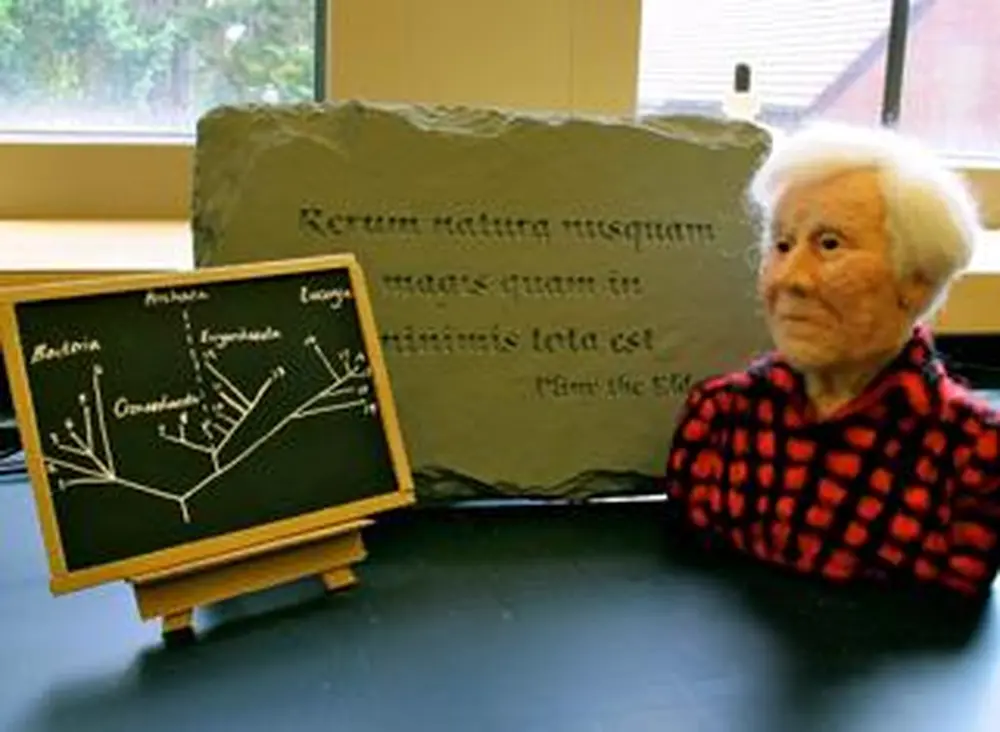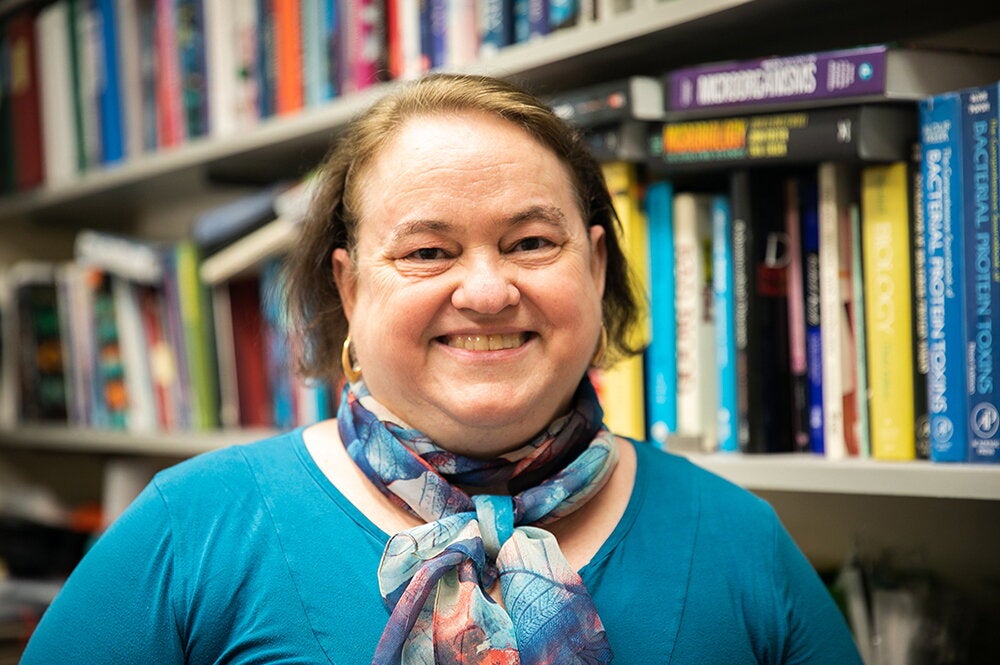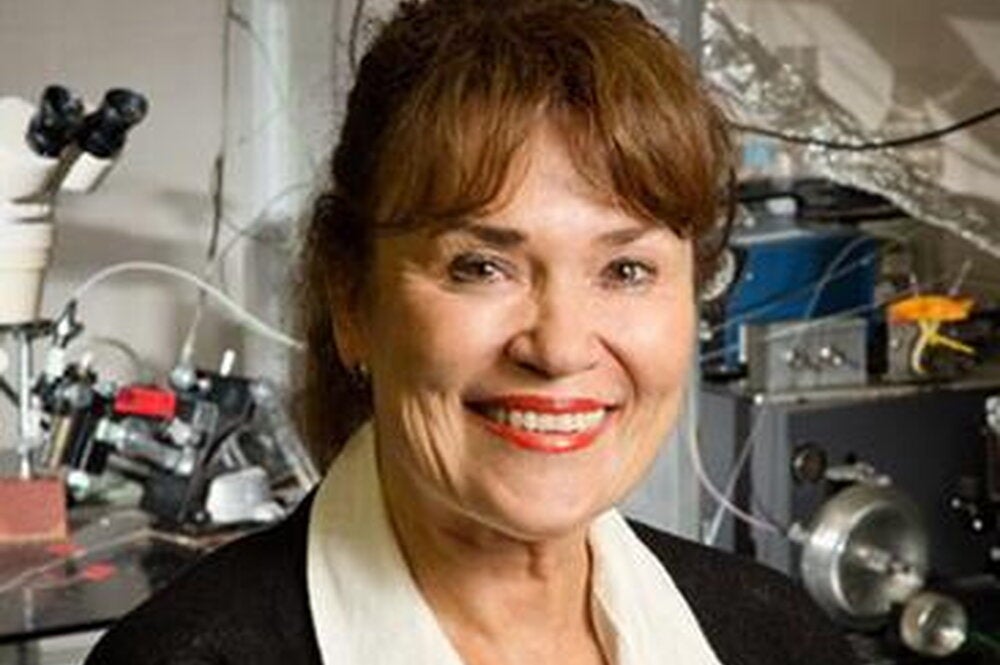

When the late microbiologist Carl Woese discovered a new domain of life, he touched lives that he didn’t even know.
One of them was Mark Martin, a professor of biology at the University of Puget Sound who met Woese only once, in the 1990s, but who spoke so glowingly of the U of I professor’s discoveries and attitude that one of his students once came to class dressed as Woese for Halloween.
Prior to Woese’s death on December 30, 2012, Martin came across the distinct artwork of Amy Wright, a European artist who makes felt sculptures with needles and wool. When Martin saw that she had created a sculpture of the late physicist Richard Feynman—another hero of Martin’s—he asked her to make a similar portrayal of Woese.
Wright creates many types of felt sculptures, and she started creating scientists after her husband, a physicist, suggested that she make one of Albert Einstein. Wright was fascinated by Woese, she says, and she agreed to sculpt him for Martin.
Using sheep’s wool that has been washed and brushed, and a barbed needle to give it shape, Wright used photos and videos of the late microbiologist to create a sculpture of him in his distinguishing red plaid shirt and wave of white hair. She added a “Tree of Life” on a miniature chalkboard that accompanied the sculpture.
“The sculpture has attracted a fair amount of attention,” adds Wright, who portrays images of the felted Woese and other works at thegreedycrocodile.com.
Martin says the felted Woese now sits prominently over his desk, along with a quote from The Roman scholar Pliny the Elder: “Nature is to be found in her entirety nowhere more than in her smallest creatures.”
“I have long been a fan of the late Dr. Woese, and respect his humane approach to science, his dogged drive in the face of intellectual (and sometimes personal) opposition, and the sheer impact he has had on modern biology,” Martin says.
“After all, who else has changed the way all biologists think about the relationships between living things?”


